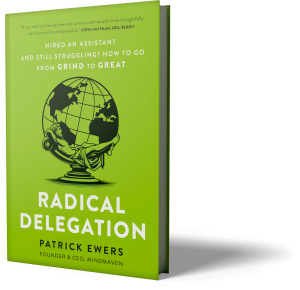 In our last blog I talked about a learning style where people take an ownership role of how they learn, and therefore, dramatically improve their outcomes. Kent State’s John Dunlosky calls this “self-regulated learning,” and you can read further about study techniques that accelerate learning in this intriguing review that he and his colleagues published.
In our last blog I talked about a learning style where people take an ownership role of how they learn, and therefore, dramatically improve their outcomes. Kent State’s John Dunlosky calls this “self-regulated learning,” and you can read further about study techniques that accelerate learning in this intriguing review that he and his colleagues published.
Today I’m going to go over this common sense learning approach and break it down into some very easy steps which I call: Identify, Practice, and Reflect. These are key skills that are often taken for granted but will help you be more proactive in your learning process and create structure around it.
Identify, Practice, and Reflect: The 3 Key Components to be More Intentional Around Learning
1. Identify
This is the planning stage. It begins with defining what your big picture goals are, then breaking up complex tasks into short-term, challenging but attainable steps. You devise a timeline and then give a self-estimation of your ability to complete those steps in that time frame. This could require your awareness that there’s something you don’t know, and therefore, you need to plan the appropriate steps to find out.
2. Practice
In this phase, you adopt powerful learning strategies to improve your learning experience. It’s important to focus on your own unique personality and the kinds of tools and resources that are available to you. To read more about some great online tools that will help you learn better, check out our next blog.
There are lots of successful strategies to learn more efficiently. We recommend picking the methods that work for you and then start implementing them on a regular basis. The strategies that researchers in educational psychology have found to be most effective are:
- Incorporating a planning and reflective process into the learning.
- Spreading out learning of the material. The idea is we learn better when we dip into the learning over intervals of time and that spaced repetition optimizes the moving of knowledge into our long-term memory.
- Improving memory retention with visual association via flash cards (now available in digital form) and other mnemonic devices such as speaking out loud, logging down thoughts, etc.
- Short, frequent self-testing, and receiving feedback on the correct answers.
- Collaborating with peers who have special insight with sharing of ideas and knowledge using tools and technology.

3. Reflect
This last phase of the process is a self-evaluation of how effective your learning method was in meeting your goals. You then take that information and adjust your strategy going forward. You may ask yourself questions such as:
- Did I complete what I set out to do?
- How well did I do?
- What could be done better?
- How does the material relate to experiences I’ve had?
- What am I still having trouble understanding?
- What changes should I make, if any?
The reflection is really a crucial step to all learning that you do. When you ask yourself these questions, it’s an elaborative rehearsal which is the thinking process that moves new knowledge into long-term memory. It also allows you to choose the path moving forward that will take you closer to the solution.
Reflecting by asking questions is an important way to internalize knowledge. Tweet this
If you’re intentional about building structure around how you learn, then lifelong learning is more than just listening to a lecture or reading a new book. It’s a process we use to create better outcomes as we look to improve ourselves as humans.
In the last part of this series, I’ll share some of the latest online tools that will dramatically improve your learning experience so you can successfully get what you’ve learned into long-term memory.
Images courtesy of khunaspix and dan at FreeDigitalPhotos.net[/fusion_builder_column][/fusion_builder_row][/fusion_builder_container]

